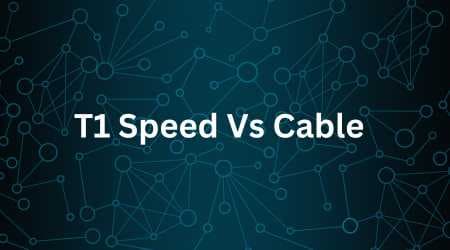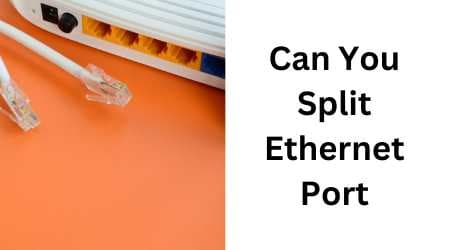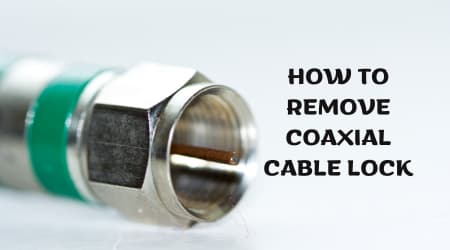
For businesses, t1 speed is generally considered the best internet connection over cable. T1 offers symmetrical speeds, dedicated lines, and guaranteed uptime making it ideal for businesses requiring reliable and fast internet connectivity.
As businesses become more dependent on technology, internet speed and reliability have become critical factors for success. Choosing the right internet connection is crucial for businesses to remain competitive in today's digital landscape. T1 speed and cable are two common options for businesses to choose from.
While cable internet may be suitable for smaller businesses, t1 speed is the better option for organizations that require high-speed internet and consistent uptime. In this article, we will explore the differences between t1 speed and cable, the advantages of t1, and why businesses would benefit from implementing t1 internet service.
T1 Internet
Explanation Of T1 Internet And Its Features
T1 internet, also known as t-carrier system, is a high-speed communication line that provides a reliable and dedicated connection to businesses for internet access. It offers a maximum bandwidth of 1. 5 mbps and is often used by small and medium-sized businesses.
Here are some key features of t1 internet:
- Dedicated connection: T1 internet connection is dedicated, meaning that businesses do not have to share the bandwidth with other users. This ensures consistent and reliable internet connection.
- Symmetrical upload and download speeds: T1 internet offers equal upload and download speeds, which is important for businesses that require fast data transfers in both directions.
- Guaranteed bandwidth: T1 internet ensures minimum guaranteed bandwidth, which means that businesses can be confident that they will always have sufficient bandwidth for their operations.
- Scalability: T1 internet is scalable, which means that businesses can increase their bandwidth as their needs grow.
Advantages And Disadvantages Of T1 Internet For Businesses
Like any other technology, t1 internet has its advantages and disadvantages for businesses. Here are some of them:
Advantages:
- Reliable connection: T1 internet connection is one of the most reliable connections available, with very minimal downtime.
- High upload and download speeds: T1 internet provides fast and consistent upload and download speeds, which is essential for businesses that need to transfer large amounts of data.
- Symmetrical bandwidth: T1 internet ensures equal upload and download speeds, making it perfect for businesses that require fast data transfers in both directions.
- Dedicated connection: T1 internet provides a dedicated connection to businesses, ensuring consistent and reliable internet connection.
- Scalable: T1 internet is scalable, making it suitable for businesses that need to increase their bandwidth as their operations grow.
Disadvantages:
- Expensive: T1 internet is often more expensive than other types of internet connections, which can be a drawback for small businesses.
- Limited bandwidth: T1 internet offers a maximum bandwidth of 1.5 mbps, which may not be sufficient for businesses that require higher bandwidth for their operations.
- Not available everywhere: T1 internet is not available in all areas, making it difficult for some businesses to access.
T1 internet is a reliable and dedicated connection that provides fast and consistent speeds to businesses. However, it is more expensive than other types of internet connections, and its limited bandwidth may not be suitable for all businesses. Ultimately, businesses should weigh the advantages and disadvantages of t1 internet carefully before deciding if it is the best option for their internet needs.
Read Also: Hdmi Cable Vs Coaxial Cable: What’s The Difference?
Why T1 Is Best For Businesses
With the increasing dependence on internet connectivity, businesses are often seen grappling with the dilemma of which type of internet connection to opt for. T1 and cable are two widely popular types of internet connections used by businesses. Both come with their pros and cons.
However, let us shed light on why t1 is considered the best choice for businesses.
Factors That Make T1 A Good Choice For Businesses, Such As Reliability And Bandwidth
There are several advantages of opting for t1 internet for businesses. Some of the factors that make t1 a reliable and secure choice for businesses are:
- Reliability: T1 offers a dedicated and symmetrical connection that provides consistent and reliable service. Unlike cable, where the bandwidth is shared with multiple users, t1 provides a consistent bandwidth, even during busy periods. This reliability factor makes t1 a popular choice, especially for mission-critical applications. Additionally, t1 lines are 99.99% secure, making them suitable for businesses that require a secure connection.
- Bandwidth: T1 provides a guaranteed bandwidth of 1.5 mbps, which is more than sufficient for small and medium-sized businesses. Furthermore, businesses can also opt for bonded t1 lines. Bonded t1 lines can provide higher bandwidth by combining two or more t1 lines. Since t1 provides symmetrical bandwidth, businesses can upload and download data at the same speed. This feature gives t1 an edge over cable connections.
- Service level agreement (sla): T1 providers offer service level agreements (slas), which guarantee a minimum level of service availability and uptime. In case of any issues, the provider offers prompt assistance to minimize downtime.
Examples Of Industries That Benefit From T1 Internet
T1 internet is a beneficial connection for businesses across various industries. Here are some examples:
- Healthcare: Hospitals, clinics, and other healthcare providers require a secure and dedicated internet connection to handle sensitive patient information. T1 provides the necessary security, reliability, and bandwidth that such organizations require.
- Finance: Financial organizations have to handle other people's money, and therefore, require a secure and reliable internet connection. T1 internet offers the necessary security features and bandwidth to handle heavy data traffic.
- E-commerce: Online stores require a fast and reliable internet connection to ensure smooth transactions. T1 lines provide the necessary bandwidth for handling multiple transactions simultaneously.
T1 internet offers several advantages that make it the best choice for businesses. With its dedicated and symmetrical bandwidth, security features, and reliability, t1 ticks all the right boxes for businesses that cannot afford to compromise on internet connectivity.
T1 Costs Vs Other Internet Options
When it comes to internet connectivity, businesses have multiple options available to them, including t1, cable, and fiber. Each option comes with its advantages and disadvantages, making it essential for businesses to evaluate their specific needs before selecting the right one.
We will compare t1 costs to other internet options, such as cable and fiber, exploring the factors contributing to t1's higher cost.
Comparison Of T1 Costs To Other Internet Options, Such As Cable And Fiber
Choosing the right internet connectivity for business can save considerable costs and position the company for growth. Apart from t1, other internet connectivity options businesses can consider are cable and fiber. Here are the key factors to consider when comparing t1 costs to other internet options:
Cable
- Low cost and widely available
- Relies on a shared network, leading to slow internet speeds during peak hours
- Limited bandwidth and less consistent speeds compared to t1
Fiber
- High-speed internet connectivity
- Large bandwidth and low latency
- A relatively new technology with limited availability in some locations
Factors That Contribute To T1'S Higher Cost
T1 internet connectivity is significantly more expensive than other internet options, including cable and fiber. Here are the factors contributing to t1's higher cost:
Dedicated Connection
T1 internet connectivity is a dedicated line connecting the user's premises to the service provider. This dedicated connection provides exclusive access to the internet, offering consistently high-speed internet connectivity.
High-Speed Internet
T1 internet connectivity guarantees high-speed internet connectivity that is stable and consistent, offering fast data transfer rates.
Increased Bandwidth Capacity
Compared to other internet connectivity options, t1 has a more substantial bandwidth capacity, allowing it to handle various applications, including voice, video, and data.
Service Provider Costs
T1 internet connectivity is a premium service, with the cost varying across service providers. The additional cost of service, coupled with the installation and maintenance expenses of the infrastructure, contribute to t1's higher price tag.
The suitability of t1 internet connectivity depends on the specific needs of a business. Although t1 is more expensive than other internet options, it guarantees high-speed internet connectivity, increased bandwidth capacity, and reliable internet speeds during peak hours. Ultimately, businesses should evaluate the options available to them before selecting the internet connectivity that best meets their needs.
Overview Of Cable Internet
Explanation Of Cable Internet And Its Features
Cable internet is a type of internet connection that uses the same network as cable television to provide internet access. Here are some of its features:
- Speeds can vary widely depending on the number of users in the area, but generally range from 50 to 300 mbps.
- Cable internet can be less expensive than t1 internet, making it an attractive option for small to medium-sized businesses.
- It is easy to install and requires minimal equipment, which is often included as part of the service provider's package.
- Cable internet typically comes with unlimited data usage.
Comparison To T1 Internet
While cable internet may seem like the better choice due to its lower cost and ease of installation, there are several factors to consider when comparing it to t1 internet:
- T1 internet offers dedicated bandwidth, meaning your company is the only one using the connection. This provides a more reliable connection and consistent speeds even during peak usage hours.
- T1 internet typically comes with a service level agreement (sla) guaranteeing 99.99% uptime and quick response times if any issues arise.
- T1 internet speeds are symmetrical, meaning the upload and download speeds are the same, making it ideal for businesses that require reliable and high-speed data transfer.
- T1 internet is more secure than cable internet since it uses a private network and is less susceptible to hacking.
- However, t1 internet is more expensive than cable internet, making it less appealing to small to medium-sized businesses.
When choosing between cable internet and t1 internet, it's essential to consider your business's specific needs, budget, and available internet options.
Advantages And Disadvantages Of Cable Internet For Businesses
Factors That Make Cable Internet A Good Choice For Businesses, Such As Cost And Speed
Cable internet is an excellent option for businesses due to its relatively low cost and high speed. Here are the reasons why:
- Cost-effective: Cable internet plans are often cheaper than t1 speed plans, making them an appealing option for small to medium-sized businesses that want to keep their expenses low.
- High speeds: Cable internet typically has higher download and upload speeds than t1 lines. This is because t1 connections come with a capped speed of 1.5mbps, while cable internet can offer much faster speeds to businesses.
- Wide availability: Cable internet is widely available in many cities, while t1 lines are often only available in urban areas. This makes it an accessible option for businesses located in rural areas or smaller towns.
Downsides Of Cable Internet, Such As Reliability Issues And Shared Bandwidth
However, cable internet does have its downsides in terms of its reliability and shared bandwidth issues. Let's take a closer look:
- Reliability issues: Cable internet is known to have occasional service interruptions due to cable bandwidth overload that may affect your business's internet connectivity. This can cause significant disruptions and negatively impact business operations.
- Shared bandwidth: As cable internet services are shared with other users in the neighborhood, this can result in decreased speed during peak usage hours. If many users are streaming or downloading large files, this could negatively impact your internet speeds and your business's productivity.
Overall, while cable internet is a cost-effective and speedy option, businesses need to consider its reliability and shared bandwidth issues before making a final decision. If your business relies heavily on internet connectivity, you may want to consider t1 speed, which offers dedicated speeds and higher reliability.
Speeds And Performance
T1 speed vs cable – which internet connection is best for businesses?
When it comes to choosing internet service for your business, it can be challenging to determine which one is best. Two of the most popular options are t1 and cable internet. Each of these options has its advantages and disadvantages, and it is vital to understand the differences in speed and performance, among other factors, before making a decision.
In this blog post, we will compare t1 and cable internet, focusing on the speeds and performance of each.
Comparison Of Speeds And Performance Of T1 And Cable Internet
T1 internet is a dedicated, symmetric connection that provides reliable and consistent speeds of 1. 5mbps. On the other hand, cable internet is an asymmetric connection that provides download speeds ranging from 10mbps to 300mbps, and upload speeds ranging from 1mbps to 50mbps, depending on the plan purchased.
Here are the key points to consider:
- T1 internet provides reliable and consistent speeds, making it ideal for businesses that require high-quality and stable connections.
- Cable internet is faster than t1, but the speeds can vary depending on the number of users and the time of day.
Factors That Contribute To Differences In Speed And Performance
Several factors contribute to the differences in speed and performance between t1 and cable internet connections. Here are the key points to consider:
- Distance from the provider: T1 internet is a dedicated connection that is mostly located near the provider's data center, while cable internet is delivered through cable lines that may be located farther away from the provider, affecting the connection's performance.
- Shared bandwidth: Cable internet is a shared connection, which means that the bandwidth is split among multiple users. This can lead to slow speeds during peak times when many users are online.
- Upstream and downstream: T1 internet has the same upload and download speeds, while cable internet has higher download speeds than upload speeds.
- Latency: T1 has lower latency than cable internet, making it ideal for businesses that require real-time and low-latency applications.
When considering which internet connection is the best for your business, it is crucial to understand the differences in speed and performance between t1 and cable internet. While t1 provides reliable and consistent speeds, cable internet is faster but can be affected by various factors such as the number of users and distance from the provider.
Ultimately, the best option for you will depend on your business's specific needs.
Scalability
Explanation Of Scalability And How It Relates To T1 And Cable Internet
As businesses grow and expand their operations, the scalability of their internet connection becomes a vital factor to consider. Refers to the ability of an internet connection to support growing bandwidth requirements without adversely affecting internet speeds and performance. Both t1 and cable internet have unique scalability features that businesses must consider when selecting the best internet connection.
Comparison Of Scalability Of T1 And Cable Internet
T1 internet scalability:
- T1 internet is a dedicated circuit that runs on copper or fiber optic lines and offers symmetrical speeds. This means that both upload and download speeds are equal.
- T1 internet’s scalability is limited due to its fixed bandwidth. Each t1 circuit provides a maximum of 1.5 mbps, and the only way to increase bandwidth is to add a new t1 circuit.
- Adding new t1 circuits can be complex and expensive for businesses. With each added circuit, the cost of service becomes higher, making t1 internet less suitable for small or medium-sized businesses.
Cable internet scalability:
- Cable internet runs on a shared network, providing asymmetrical speeds where the download speed is faster than the upload speed.
- Cable internet scalability is higher than t1 since businesses can increase bandwidth by upgrading their service plan. This can be done without adding new equipment, making it cost-effective.
- Cable internet is suitable for both small and large businesses. Providers have different plans that can accommodate different bandwidth requirements.
While t1 internet offers excellent speeds and reliability, its scalability is limited and can only increase through the addition of new circuits. Cable internet, on the other hand, provides higher scalability and flexibility, making it the best choice for businesses that plan to expand their operations.
Frequently Asked Questions Of T1 Speed Vs Cable – Which Internet Connection Is Best For Businesses?
What Are The Differences Between T1 Speed And Cable Internet?
T1 and cable internet differ in their speed, reliability, and cost. T1 offers symmetric speeds, guaranteed uptime, and higher costs. Cable offers asymmetric speeds, shared bandwidth, and lower costs.
Which Internet Connection Is Better For Small Businesses?
It depends on your business needs. For businesses that require high uptime and speed, t1 is the best choice. For businesses that do not rely on high-speed and uptime, cable internet is a more affordable option.
Can T1 And Cable Internet Be Used For Voip?
Yes, both t1 and cable internet can be used for voip. However, t1 provides better call quality and reliability due to its symmetrical speeds and guaranteed uptime. Cable internet may experience bandwidth issues during peak traffic hours, affecting call quality.
Conclusion
It's clear that both t1 and cable internet connections come with their unique advantages and disadvantages. T1 connections are known for their reliability and symmetrical upload and download speed, making them an ideal choice for businesses that require consistent and secure transmissions of critical data.
On the other hand, cable internet connections are more affordable, offer faster downloads, and are widely available, making them a popular choice for small and medium-sized businesses. When making a decision, it's important to prioritize your company's specific needs. It's wise to weigh the pros and cons of each option to determine which will meet your specific requirements, budget, and bandwidth needs.
Regardless of your decision, it's essential to ensure that your chosen internet connection can uphold the demands of your business operations. Investing in a reliable and fast internet connection will help ensure that your company remains competitive in today's fast-paced digital landscape.





